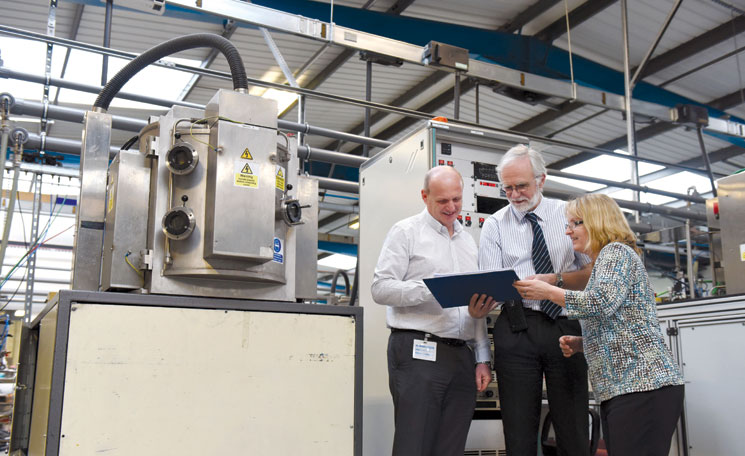Teer Coatings Ltd (TCL) has seen the benefits of NATEP funding and support. Now the Droitwich-based company is helping other SMEs see it for themselves.

TCL worked on three projects under NATEP and its Midlands-based predecessor, the Aerospace Technology Exploitation Programme (ATEP). Dr Kevin Cooke was involved in all of them.
TCL’s first project, with ATEP support, was ‘Forging tools using nano engineering (FORTUNE)’, with Anopol as the other industry partner, University of Birmingham as the academic subcontractor and Rolls-Royce Inchinnan as end-user.
The company later teamed up with the tool-maker Kyocera-Unimerco on NATEP-funded projects to develop ‘Dry drilling of aluminium alloys’, with the University of Manchester and end-user Airbus; and ‘Ultrasonic assisted machining of aerospace composites (USAMAC)’, with the University of Warwick’s Advanced Manufacturing Group and end-user BAE Systems.
Some years ago, Cooke was recruited onto the Midlands Regional Advisory Panel (RAP), the committee of subject matter experts and regional alliance representatives which assesses project proposals, for his expertise in materials science. It’s an industry network whose importance to SMEs was illustrated in the chain of events that led to the dry drilling project.
“It came about through a question to the MAA’s technology manager, Peter Knight, at Farnborough from Colin Sharples of Kyocera-Unimerco,” said Cooke. “Peter thought TCL might be able to help and called me. I was on the platform at Crewe station at the time. It all grew from there.”
For SMEs such as TCL, ATEP/NATEP presented “a unique opportunity” to work with the likes of Rolls-Royce and Airbus as potential end-users and customers. “They allowed us to work on high-performance coatings for forging and forming tools, which played to our strength,” said Dr Cooke.
A key factor, he added, was the help and insight the SMEs received from MAA’s technical managers, first in defining their proposed projects and later in monitoring and reporting on progress to justify the funding. “The programme’s strength is knowing how to portray and present things. Those at the coal face are often not best placed to do so.”
Even so, unexpected outcomes are common, Cooke said. The FORTUNE project, for example, succeeded in developing a coated clipping tool that didn’t need lubricating oil and thus eliminated a cleaning operation, but it could not quite match the performance of the traditional, lubricated process.
Cooke said the project was “positive and interesting [but] not directly transformative”; TCL got a publication in the Journal of Physics D: Applied Physics out of it, a useful marketing aid, and Rolls-Royce gained new knowledge about tool design and coatings. “The benefits of the project are in the industry.”
Similarly, the USAMAC project’s results proved the project had merit although it failed to produce a ‘eureka’ moment and has yet to be commercialised. The aim, said Cooke, was to improve the lifetime of tooling and reduce the thrust force needed to drill advanced composites, both advantages as aerospace manufacturers moves to more robotic machining.
Cooke was happy to join the Midlands RAP and remains a member with TCL’s support. From a company perspective, he said, “it’s great to see new problems, ideas and future collaboration possibilities while you’re giving back to the industry.
“I was impressed with the NATEP model – an SME can get help through the whole process from submission to prosecution,” he said. This, to his mind, compares favourably with other funding models that TCL had worked with which are more ‘hands-off’.
“I could see where companies less experienced than us might struggle. The RAP can offer advice on what they might have to think about for a realistic chance of success in their bid.”
Industry participation is a cornerstone of NATEP. For an SME, having a representative on a RAP allows it to punch above its weight and helps raise its profile with primes and top tier contractors. Said Cooke: “The networking opportunities alone make it worthwhile.”

